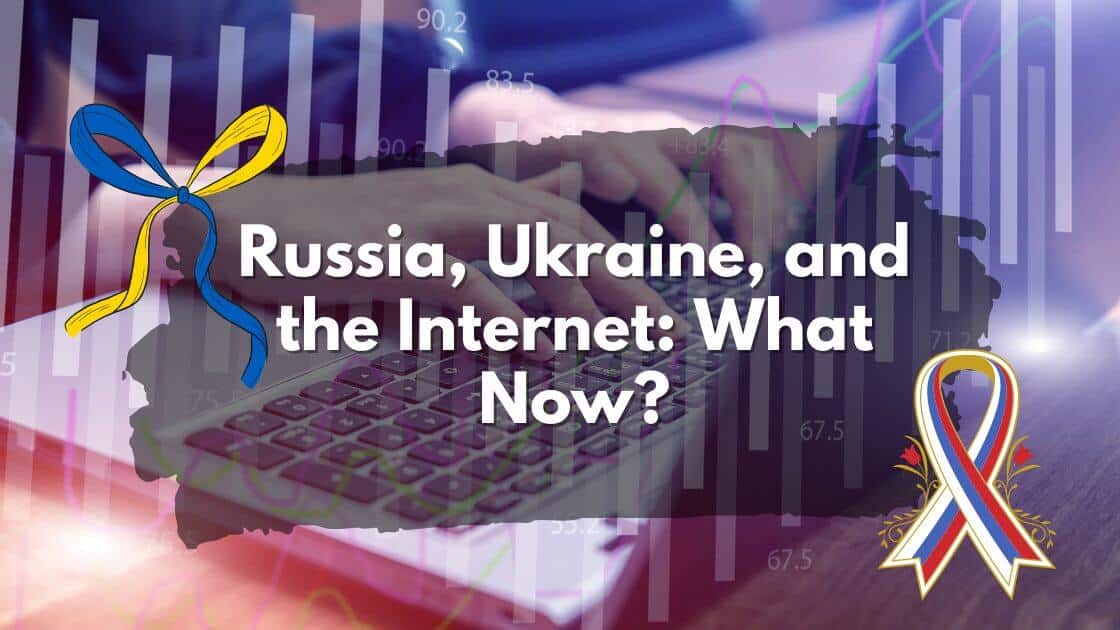The Internet’s Brief History
The internet has a long line of history ahead of us. It started around 1960 in a way for researchers to share information. It was further shaped during the Cold War with the release of the Sputnik 1. This prompted the US Defense Department to find a way to improve communications to stay ahead of the enemy and avoid surprises such as the launch of Sputnik 1. The efforts of the US Defense Department yielded the early version of the Internet called the Advances Research Projects Agency Network (ARPANET). Military and research organizations quickly connected to this network a few years later. Then, with the introduction of the TCP/IP, the whole world connected to the network. This has led to what we call “The Internet” today.
Will Russia be cut off from the Internet?
Time and again, history certainly has its way of repeating itself. We are now facing an uncharted territory with the unprecedented war of Russia and Ukraine in the modern world. In the world of digitalization, social media, rapid advancements in technology and communication, and the flourishing of NFTs and Cryptocurrencies, being plugged off from the Internet is a major disruption to personal lives, businesses, and even global economies. This is what’s currently happening with Russia.
With the conflict between Russia and Ukraine, countries all over the world are issuing sanctions against Russia, global brands and companies have issued their statements of pulling out their transactions and partnerships with Russia. This goes the same for the big tech companies such as Meta, Google, and Apple.
Facebook and Twitter are blocked for Russian users, while Tiktok does not allow Russian users to post. Police reportedly stopped people from looking at their phones. With all of these happening, Russia is on a tightrope and the Internet will change forever for Russian users.
The Ukrainian government has called out to various tech firms to shut their services down in Russia. Now, Ukraine’s tech-savvy leaders are calling for the complete unplugging of Russia from the Internet.
The Internet’s Answer
The Internet Corporation for Assigned Name and Numbers (ICANN), the organization in charge of Internet governance, answered in the negative. ICANN responded that, in support of its tagline, “One World, One Internet”, the ICANN cannot exclude anyone from the Internet. No matter the circumstances, its goal is to maintain neutrality and shall not take punitive actions, issue sanctions, or restrict access for anyone.
This response is by far, a wise decision. Banning Russia from the Internet could have serious repercussions. Doing so would set a very dangerous precedent against the stability, neutrality, and generality of the Internet. If the ICANN allowed such “unplugging”, this would become a basis later on whenever conflicts arise between nations, and giving teeth to the organization. ICANN was not meant to regulate, but rather just to facilitate the Internet.
The Dangerous Consequence
Russia has been experimenting on the “Runet” for several years now. This is a version of the Internet that is exclusively for Russia. China has a similar version of their own internet dubbed as “The Great Firewall of China”. The only difference is that China built their version from the ground up while Russia retrofitted theirs with the Internet.
It now appears that Russia is recalibrating these systems and retesting it to try and connect all Russian ISPs to a Russian intranet. The date set for the completion of the test is on March 11, 2022. Some thought that this signals that Russia is ready to cut itself off from the Internet.
The Ukraine-Russia Conflict and the Internet
The internet, as we’ve earlier discussed, has evolved from simply being a means to connect researchers and military organizations in response to technological advancements. In the old times, it was the Soviet Union’s launching of the Sputnik 1 which triggered the advancement of the Internet. Once again, we are now seeing a geopolitical event, and it may have a really huge effect on the Internet that we know now.
The Internet and Social Media Platforms have enabled mankind unprecedented access to each other, sharing information and news has become much faster, more convenient, and less costly. One can say that the Internet has made it possible to transcend geographical boundaries globally and bring about rapid changes to society. However, with this conflict in Ukraine and Russia, and by the looks of Russia’s government in retesting Runet, China and Russia might be able to demonstrate to the world what having their own Internet looks like. Everything is regulated and the content consumed by people are all government-approved.
In 2016, Russia’s Fang Binxing, known as the founding father of China’s Great Firewall, visited Russia to assist them with their Runet and help them further develop it. Now, Russia once again looks to Beijing. Relying on the Chinese government will be essential, now more than ever.
The world has yet to see the effects of the Ukraine-Russia conflict on the Internet. We can only look forward and stay tuned to the events. Every country in the world is now looking at Russia and Ukraine, people campaigning, banning, and abandoning Russia. Will this signal the birth of a new model of the Internet? Only time will tell.






































